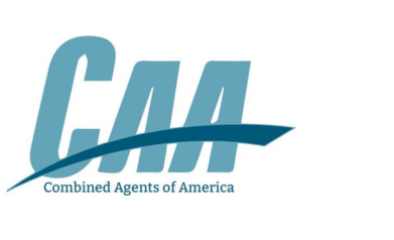When a commercial policyholder declares bankruptcy, agents are faced with a number of questions.
Q. Should I tell the insurance company that the policyholder has declared bankruptcy?
A. Yes. It is always important and possibly an obligation of your agency agreement to advise the insurer that a policyholder has filed for bankruptcy. If the policy is not billed by the insurer, the insurer may not otherwise receive notice of the bankruptcy.
Q. If the bankrupt policyholder owes premium to the agency on open account, can I cancel the policy?
A. No. The agent has no right to cancel an insurance policy. The policy is a two-party contract between the insurer and the policyholder, so only those parties have a right to cancel the policy in accordance with the cancellation provision of the policy. The agent can ask the company to send notice of cancellation due to nonpayment to the agent, but the company may decline to do so if the agency has paid the premium to the company.
Q. Can the insurance company cancel the policy of a bankrupt policyholder for nonpayment of premium?
A. Maybe. The filing of a bankruptcy petition generally provides for an automatic stay of any cancellation opportunities an agent or company may have. If a cancellation notice has been issued, but not effected, it must be rescinded. If it has been effected, however, the bankruptcy court will not force a reinstatement.
Dealing with payment of premiums can be a sticky matter. Premiums for installments due post-petition are considered an administrative priority expense. The agent or insurer should submit those invoices to the trustee. If the trustee does not make payment, the billing must be sent to the bankruptcy judge for handling. If the trustee and the judge do not make timely payment, the policy is subject to cancellation.
Premiums that are delinquent prior to the filing of the bankruptcy petition are not subject to priority. These premiums are handled in the normal course of debt analysis and prioritization as a non-priority unsecured debt. If they are agency bill, the agent is generally not relieved from payment to the insurer. The agency contract normally holds the agent liable for premiums whether collected or collectible. There may be a specific period of time that the insurer allows for return of uncollectible audits, but generally normal installments are the credit risk of the agent.
Q. Can I go after the principal stockholders for unpaid premium?
A. It depends on who you billed. If you billed the corporation you are probably out of luck. If you billed the individuals, you can try to collect from the individuals. In any event, you are most likely an unsecured creditor and will be WAY down the list. That is one of the dangers if you are fronting premium for an insured. Your best bet is to talk to an attorney well-versed in bankruptcy law.
Q. Can the insurance company cancel just because the policyholder has filed bankruptcy?
A. The filing of a bankruptcy petition generally provides for an automatic stay of any cancellation opportunities a company may have. An insurer may want to cancel a bankrupt policyholder's policy mid-term using the argument that the bankruptcy is an increase in hazard. Most policies written by admitted insurers are subject to a state law that prohibits mid-term cancellation except for certain reasons. One of the permitted reasons is "an increase in hazard within the insured's control which would increase the rate." Bankruptcy on the insured is not necessarily an increase in hazard, but in any event it's doubtful the insurer could demonstrate that its rate filing includes provision for a mid-term premium increase when a policyholder files for bankruptcy.
Q. Can the insurer decline to renew the policy of a bankrupt policyholder?
A. The bankruptcy petition does not prevent an insurer from non-renewing an insured under its normal underwriting guidelines. There is one exception to this permission. The bankruptcy laws will supersede any underwriting guideline based solely on financial condition of the insured. This may be a sticky issue if the insurer has been on the risk for many years. It may be difficult to make the case that the non-renewal has nothing to do with bankruptcy.
Q. How are claims handled when the policyholder is bankrupt?
A. First-party claims are the property of the bankrupt estate and, therefore, go to the trustee and he or she distributes the proceeds to the creditors as is appropriate. In third-party cases, the bankruptcy stops the proceeding until a motion is made to the court with the plaintiff agreeing to take only from the insurance policy up to the limits and then the suit goes forward.














